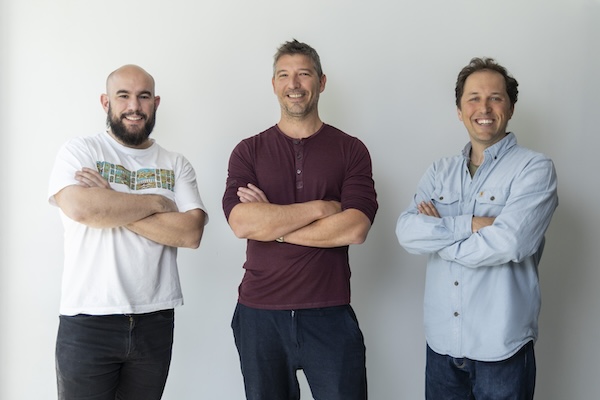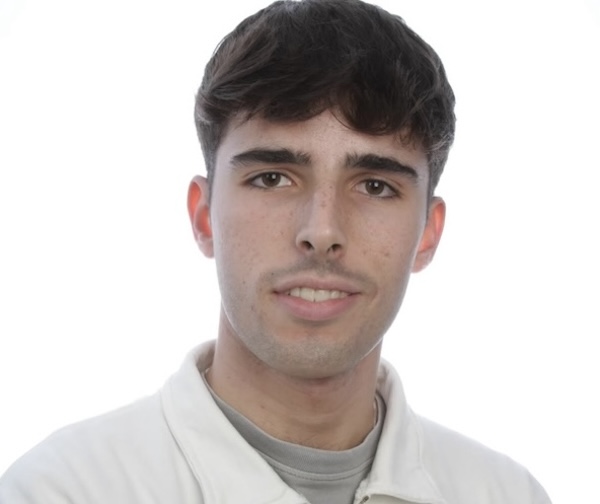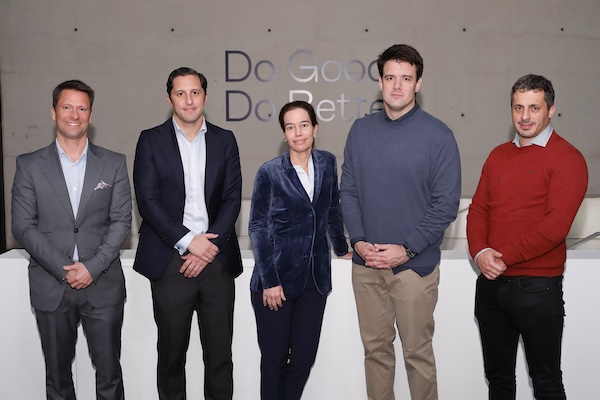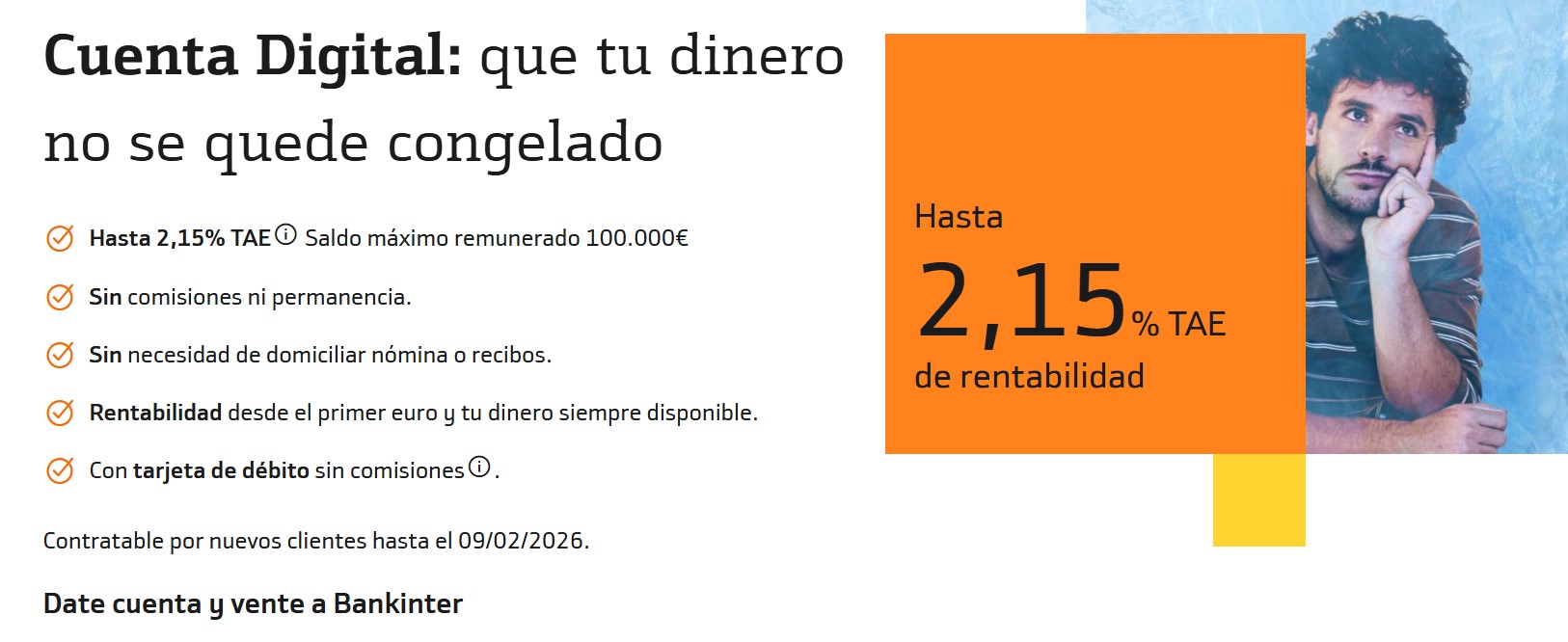The event brought together experts, investors, and managers in the real-estate sector to learn about the most innovative proposals with the highest growth potential

The Esade Alumni Real Estate Club and Esade Alumni Entrepreneurship held the successful seventh edition of the Esade Alumni PropTech Challenge, an event that brought together experts, investors, and managers from the real estate sector to learn about the most innovative proposals with the highest growth potential.
The breakfast where the shortlisted projects were presented was held on April 2, 2025, when five startups presented cross-cutting solutions for significant challenges facing the sector, solidifying the event as a benchmark platform for promoting entrepreneurship and innovation in the field of PropTech. The proposals addressed crucial issues like young people’s access to housing, energy and water savings, energy sustainability, safety in homeowners’ associations, and building administration, and showed how cutting-edge technology can provide efficient responses to everyday challenges.
An exceptional jury made up of representatives of the business, entrepreneurial, and academic worlds was in charge of assessing each project’s potential: Carmina Ganyet (VV 03), president of the Esade Alumni Real Estate Club; Patricia Valentí (MBA 02/Promociona 19), director of Esade Alumni; Fernando Zallo (Lic&MBA 83), director of Esade BAN; Enrique Martínez Laguna (MBA 93), vice-president of the Esade Alumni Real Estate Club; Eduard Mendiluce (MBA 97), vice-president of the Esade Alumni Real Estate Club; Acisclo Pérez (Lic&MBA 08), board member of the Esade Alumni Real Estate Club; Alicia Vicente (CMBA 18), board member of the Esade Alumni Real Estate Club; and Ignacio Raventós (BBA 12), board member of the Esade Alumni Real Estate Club.
The shortlisted projects
The five shortlisted projects that presented their innovative solutions were:
· Habitación.com: This is a platform that seeks to provide young people with access to homeownership through partial purchases of rooms in shared flats, offering both a housing option and an investment opportunity.
· Waisense Technology: This company is devoted to developing tech solutions based on IoT, AI, and big data to optimize the use of water and promote water sustainability in households and cities.
· Roseo Eólica Urbana: This company promotes the generation of clean energy in urban settings through wind turbines designed to be installed in buildings in order to lower the dependence on fossil fuels.
· Verifait: This company focuses on digital trust and identity verification by offering online security solutions with AI agents capable of constantly supervising cameras to prevent fraud and guarantee secure digital interactions.
· Vecinfy: This is a digital platform to improve communication and management in homeowners’ associations by simplifying administrative tasks and offering services like managing bills and contracting maintenance.
PropTech and Gen AI in the sector
At the event, David Bros, the director of the Real Estate Management program at Esade, shared his vision of the trends in PropTech and Gen AI in the real estate sector. He highlighted investors’ increasing trust in PropTech startups and how technology may be essential in addressing the sector’s two main challenges, namely housing affordability and the impact of climate change, by lowering building and management costs.
Regarding generative AI, Bros stated that companies are primarily asking for its functionalities in marketing and sales, as well as in product and service development. One important point is the real estate sector’s high level of trust in AI-generated contents, which have the potential to transform fields like architecture and construction. However, he stressed that the industry has to adapt in order to fully capitalize on the benefits of generative AI.
Verifait, the winning project
Patricia Valentí, the director of Esade Alumni, was in charge of closing the event by announcing that Verifait was the winning project in this 7th edition. “We learned from all the projects, and it was difficult to choose one. But we primarily valued the fact that Verifait solves a significant challenge for the sector and has a high growth potential,” she said. Verifait’s win underscores the increasing importance of artificial intelligence in the transformation of the real estate sector, offering innovative solutions for crucial challenges like security and digital trust. We interviewed the Verifait team about their project and their participation in the 7th Esade Alumni PropTech Challenge.
- What is Verifait’s differential value? How did the idea arise?
We have been working in artificial intelligence applied to surveillance for twenty years. With the new-generation AI revolution, new business opportunities arose in automation and operation. We saw the possibility of transforming surveillance so that people can work in supervision and leave behind the repetitive, monotonous, and in some ways inhuman job of spending hours and hours looking at a screen. The new AI allows machines to do this work while humans supervise them.
One key advantage of the new AI is interaction with natural language. At Verifait, we offer “artificial intelligence agents” that you can interact with in a much more natural, flexible way, as if you were speaking with a person. No specific training is needed.
- What does your product bring to the real estate sector?
The real estate sector is very interesting to us because of the vast number of cameras without any real value in corporate and residential buildings. These cameras seldom prevent vandalism or help identify the perpetrators. How many times has graffiti in your housing estate had consequences? We supposedly install cameras for security, but do they really dissuade perpetrators? Our proposal is to democratize surveillance in places where there are no guards or only part-time ones. We offer AI-based guards which can prevent vandalism because we can notify the police or activate dissuasive features.
- What stage is the company in and what are its future steps?
The company began operating in 2024 and we already have several customers. We’re now actively working to develop new AI agents.
- What about your future steps?
Our goal is to be the international leader in the sale of artificial intelligence agents for security and protection. This type of agent is not currently being sold, and we want to be the number one company in this field. We’re working on a round of financing, and our goal is to end the year with a ten-person team.
- Why did you decide to participate in the Real Estate Challenge? How would you rate this initiative to promote entrepreneurship in the sector?
Real estate is one of the sectors that interest us the most precisely because of the large number of cameras installed. Both companies and private individuals are concerned with the security of their properties. We are seeing an increasing need for security in housing estates, for example, where it’s now common to build with cameras already installed.
Plus, in Spain we have a particular problem with squatters. Our technology could help prevent them by detecting unauthorized people before they enter the property, for example on the landing, when they enter the building, at the pool, or in the garden. This would allow for preventive work, unlike the current situation, where prevention is only activated once they’re already inside.

Rafael Gil, Eduardo Cermeño and Guillermo Valderrábano, from Verifait



































